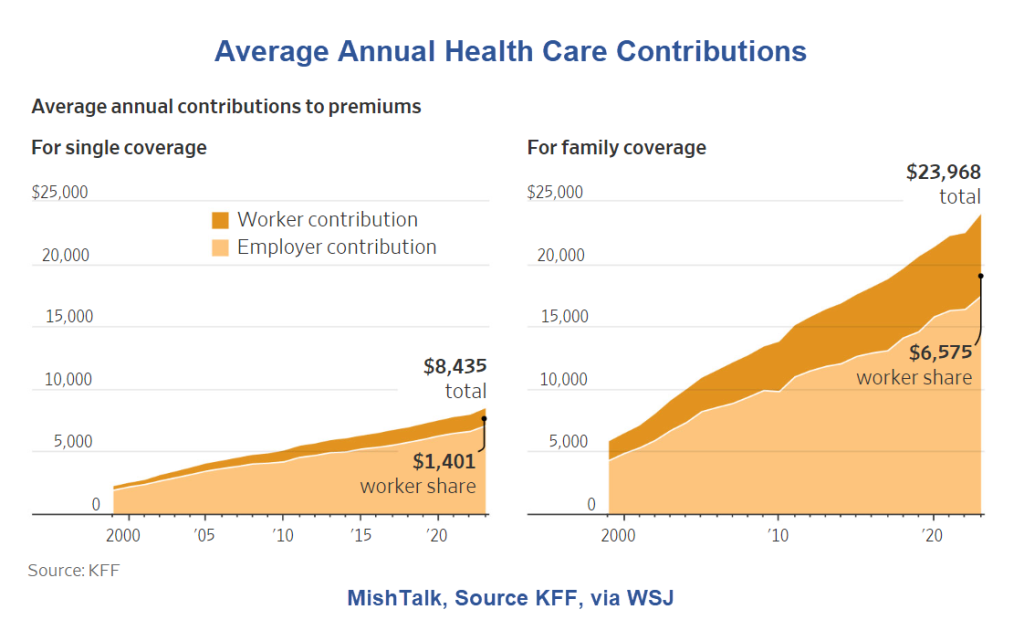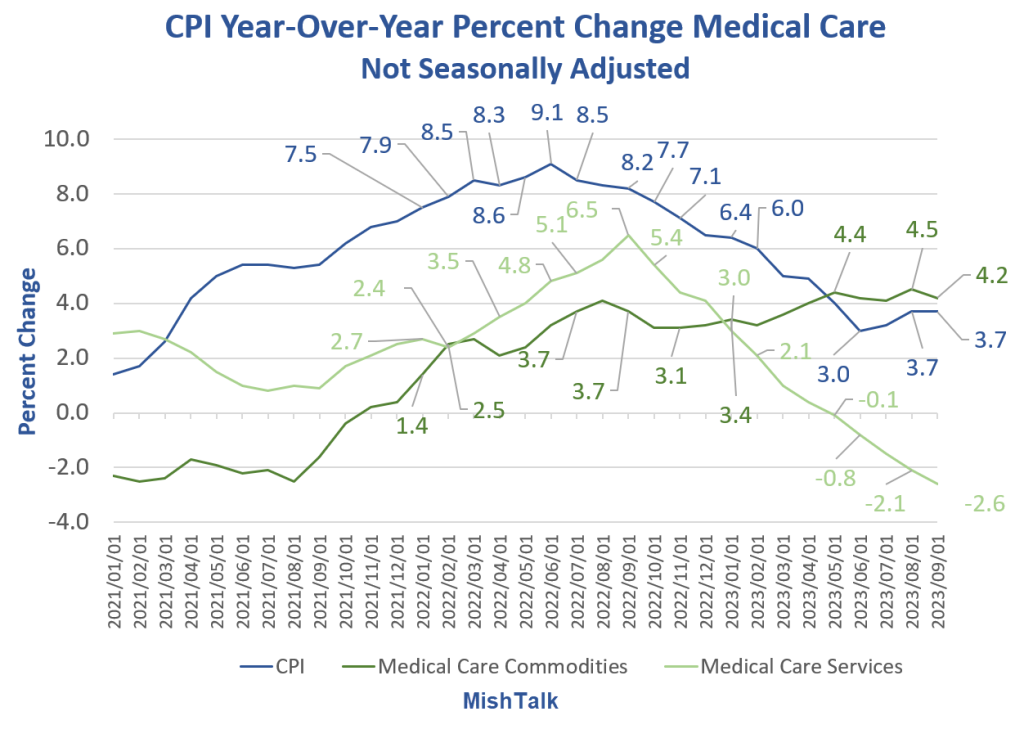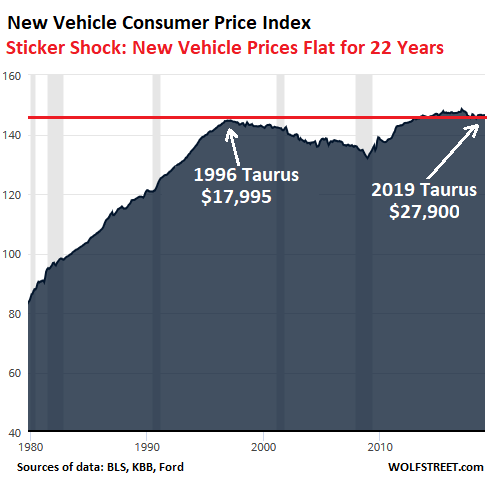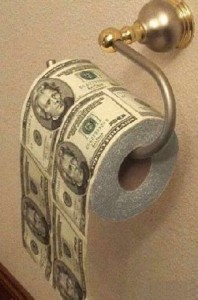Good heavens the economic bad news is piling up like a bad car wreck so let’s do some serious rubberknecking, folks, because there is a lot of fucked up shit to watch, just don’t step in it, okay?
We begin with widepsread reports of large institutional investors (hedge funds, investment banks, boutique investment firms) selling off services stocks like leisure, luxury, hotels, and some retail outlets, like Home Depot. That’s a lot of cash leaving equities. But for what safe harbor? It certainly isn’t private credit, like Blackrock which lost 100% on one investment. UBS also lost 100% on another private credit deal. Now, Blackrock lost $150 million on the deal, which for Blackrock is naught but a silly little rounding error, but as they say, $150 million here, a $150 million there and pretty soon you’re talking real money. That cash won’t go to US treasuries, that’s for damn sure. Seriously, who’d invest in US dollars? I wouldn’t fuck a US treasury with Magic Johnson’s dick.
Yeah, I said it. It needed to be said.
Want news even more ominous: JP Morgan Chase, Goldman Sachs and my alma mater (for full disclosure) Morgan Stanley were the lead underwriters of a $1 billion increase in AI firm Coreweave’s $2.5 billion revolving credit facility. The term sheet expands the maturity date from 2028 to 2029. Just a year? Did they attempt any due dililgence on Coreweave’s burn rate? It’s gotta be a fuckton fast–see, Americans can do metrics. FTW!
But really, you know that kind of high-tech equipment becomes obsolete and depreciates faster than that loan reaches maturity. There is zero, zilch, nada, niente, nyet, nein, no way Coreweave’s earning increase that rapidly. To quote Yoda, “Coreweave, Apple certainly not you are.”
Apple’s so profitable it prints money.
I mean, seriosuly, Christ on a popsicle stick: where’s the due diligence? Do investment firms even have compliance departments any more? Where are the regulators?
Yeah, yeah, I know, I know.
But it gets worse: On Nov. 4, Meta agreed to an off-balance sheet $27 billion loan (also known as a Special Purpose Entity, henceforth SPE) from Blue Owl Capital (OBCD). This is financial shenanigans and identical to the accounting legerdemain that led to Enron’s ruin. Pay attention people. This is getting ugly. Enron butt-hurt ugly is how bad this is starting to look. Let me break this down for you, in case you forgot. An SPE is off-balance sheet. That means the company is under no obligation to report it on its SEC required filings. Get it now? Investors have absolutely no way of knowing how much off-balance sheet debt a particular company has. SPEs=bad ju-ju.
To wit: Oracle has a debt-to-equity ratio approaching 500% and that’s just what’s on the their balance sheet. Has Oracle borrowed any money where the debt is accounted for in an SPE?
Guess what, folks? There is literally no way to know if Oracle has any SPE loans outstanding.
My bet: they do.
Speaking of shit credit, or is it credit shit?
Whatever. Moving on.
JP Morgan notes AI linked debt now accounts for 14% of its investment grade corporate index (CGI IG), surpassing US commercial banks as the dominant sector. Who the fuck knew US commercial banks have turned into stingy mozafukas? Can haz dolerz, puleeze?
“What does it mean,” you query, doing your best to ignore my increasingly insulting expletives.
Well, it means not only are AI firms taking on loads of traditionally financed debt, but they are bulking up with the anabolic steroid equivalent of debt: unknowable and NON-REPORTABLE SPE debt. They pump this iron to finance AI hyper-scaling. No wonder the main character of the (mostly) true movie, The Big Short, Michael Burry, is closing his fund. Dude shorted Palntir and Nvidia and got caught with his pants down. Sadly, Burry forgot John Maynard Keynes keen paroemia (from the ancient Greek meaning maxim or proverb), when he lost all his money in the 1929 crash: “markets can remain irrational longer than you can remain solvent.”
Also: beware neologisms created on Wall Street. Today’s new phrase is ‘data center credit.’ Sounds positive, aye? It ain’t. It’s a bullshit phrase referring to debt financed for the AI sector by private credit shops. Tons and tons of bullshit, yes?
There is also news that insurers are placing more than 50% of assets needed to guarantee/backstop annuities and life insurance policies into private credit shops. This is a terrible idea. Annuities are insurance policies designed to pay out in the event you live too long. Life insurance is, well, insurance against not living long enough. This is stupid. Epic stupid and civilization-ending risky. It’s like giving the nuclear football to Beevis and Butthead stupid.
Oil prices are soft/down to flat. Texas rig counts are down again this month, rig counts are considered a leading economic indicator.
Now to news out of the Big Apple tonight that absolutely shrivels me testes–say it with me like a pirate! As my little sister used to say to me, “you are so not fun.”
Anywho: the head of the NY Fed convened an emergency meeting of bank heads to discuss one of the Fed’s key lending facilities. I’m almost certain this is in response to the rising private credit loses and how they resemble Bear Stearns blowing up two subprime hedge-funds in 2007, the precise moment the 2008 financial crisis began.
 Most distressing is today’s down volume high. It’s one like we’ve never seen before. The downward volume and amount of stocks closing on the downside blew out a 35 year high. This screams louder than Rob Halford singing ‘Victim of Changes’ live at the US Festival in 1983. It’s also an indicator of deeper stresses affecting equity markets.
Most distressing is today’s down volume high. It’s one like we’ve never seen before. The downward volume and amount of stocks closing on the downside blew out a 35 year high. This screams louder than Rob Halford singing ‘Victim of Changes’ live at the US Festival in 1983. It’s also an indicator of deeper stresses affecting equity markets.
This is what we now call, in the algorithm-trade dominated age, a mechanical sell-off. All of Wall Street’s proprietary algorithms saw red and initiated the mother of all sell offs. This already spectacularly terrifyingly narrow advance is getting narrower. And it is growing more brittle by the day. Why worry? Are markets worried about private credit shops lending to off-balance sheet AI SPEs? Is liquidity getting tighter? Risk limits getting ripped to shreds? Doesn’t really matter. It’s a big signal that should overpower the noise. But it won’t.
Wall Streets useful idiots will do their duty and cheer until the real crisis begins to unravel. Sooner now, than later. You can bank on that. Just don’t do it in US dollars. That would be dumb. Epic-like dumb.
More great economic news: large corporate bankruptcy filings, as of mid-November, rise to 15 year high. That’s higher than the COVID-19 crisis. To date 655 public companies have filed for bankruptcy. Good times, aye?
Finally, a postitive thought, in a manner of speaking. The only thing the equity markets have going in their favor right now is this: the almost impossible to prevent or deny Christmas rally. It’s damn near as reliable as the Monsoons.
So, if the econ shit does hit the fan, it’ll happen after January 1.






 Alright, so Germany has now introduced a zero interest bond. That means, given inflation, people will get back less effective money than they started with.
Alright, so Germany has now introduced a zero interest bond. That means, given inflation, people will get back less effective money than they started with.